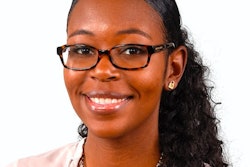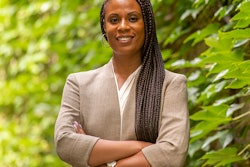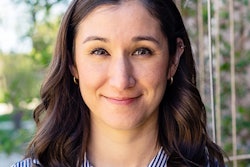Title: Assistant Professor, Educational Leadership and Policy Studies, University of Tennessee, Knoxville
Tenured: No (tenure track)
Age: 32
Education: B.A., criminology, law & society, University of California, Irvine; M.S., counseling, University of Wisconsin-Madison; and Ph.D., educational leadership & policy analysis, University of Wisconsin-Madison
Career mentors: Dr. Rachelle Winkle-Wagner, University of Wisconsin-Madison; Dr. Alberta M. Gloria, University of Wisconsin-Madison; Dr. Xueli Wang, University of Wisconsin-Madison; Dr. Jeanett Castellanos, University of California, Irvine; and Dr. Joseph White, University of California, Irvine
Words of wisdom/advice for new faculty members: “Find your own voice as a scholar, identify your own style as a professor, and build genuine relationships with people.”
At age 32, Dr. Mary Dueñas has a clear goal. She would like to see underrepresented and marginalized students thrive and succeed in higher education. As an assistant professor of educational leadership and policy studies (ELPS) and coordinator of the college student personnel program at University of Tennessee, Knoxville, she is working to achieve that goal with her scholarship and her administrative responsibilities.
Dueñas’ scholarship addresses issues of equity and access in higher education with a focus on sense of belonging and experiences with imposter syndrome among Latinx students attending four-year colleges and universities. “My research examines the ways in which larger social processes affect students and their overall well-being while also addressing underrepresented and marginalized students in relation to retention and success,” she says.
Dueñas says she uses both qualitative and quantitative methods to examine students in their higher educational spaces. She says that, in her research practice, she also applies “both holistic frameworks and critical theory” to share stories and explain systemic inequities that marginalized communities face as they persist through higher education.
“A common framework that I’ve used has been the Psychosociocultural framework (PSC); that really speaks to the students’ sense of self,” she points out. “It’s about the whole student, not parts of the student.”
Dr. Cristobal Salinas Jr., an associate professor of educational leadership and research methodology at Florida Atlantic University, commends Dueñas for her innovation. “Her scholarship is characterized by its commitment to engage in scholarship that continues to push the boundaries of higher education by exploring novel perspectives and innovative research approaches,” Salinas states in his nomination letter to Diverse. “This commitment to pioneering scholarship has been complemented by her unwavering dedication to teaching and mentoring the next generation of scholars, which is an integral part of her academic mission.”
Dueñas says her work calls upon “researchers, educators, [and] even, at times, policymakers to think about the ways in which policies, curriculums, rules, bylaws . . . affect the day-to-day lives of students.”
In addition to her published peer-reviewed journal articles, Dueñas has been a guest on a podcast discussing her academic journey, and she has several works under review and in progress that she is authoring or co-authoring focused on the well-being of Latinx and other students of color. Among those is “Síndrome del impostor: The Impact of the COVID-19 Pandemic on Latinx College Students’ Experiences with Imposter Syndrome.” Another is “Culturally Responsive Mentoring: a Psychosociocultural Perspective on Sustaining Students of Color Career Aspirations in STEM,” which she is co-authoring.
She has been supported in her studies and research by numerous grants and fellowships including a 2022 grant from the Office of the Provost Research Development Academy at UT-Knoxville; she was a 2023 Faculty Fellow with the Association of American Hispanics in Higher Education, Inc.; and she received a 2019 Graduate Peer Mentor Award at University of Wisconsin-Madison Graduate School, among others.
Dueñas explains that her work comes from an asset-based, rather than a deficit-based, perspective. “It’s more about the positives of what makes a student’s experience successful in higher education, and I ask the questions of what works.”
As program coordinator in the master’s student personnel program, Dueñas says her students challenge her all the time, and she’s “learning a lot from them.” She says she’s also noticing differences in today’s students and in higher education overall from when she was a graduate student. “There is a changing landscape . . . in how we think about higher education,” she says. “It’s not so much about the students adapting to higher education, it’s more about how higher education is supporting and serving the students.”





















